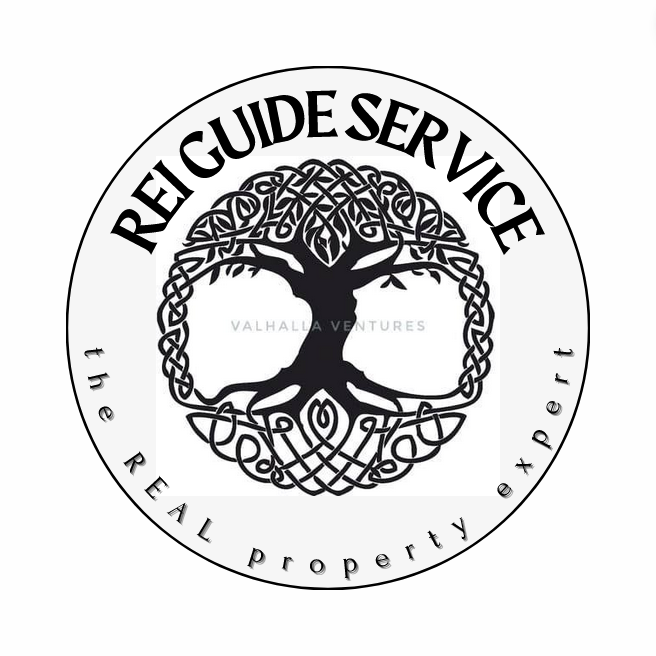Commercial Real Estate Isn’t a Side Hustle, It’s a Full-Time Checklist That’ll Eat You Alive If You Let It
Let’s go ahead and rip the bandaid off:
If you think commercial real estate (CRE) is just “buy a building, collect rent, retire,” I’d love to sell you a time-share in Chernobyl.
CRE is complex. And I’m not talking about spreadsheets and returns. I’m talking about the mountain of due diligence, evaluations, inspections, approvals, and strategic decisions that actually dictate whether this investment becomes a golden goose or a radioactive paperweight.
Here’s the inconvenient truth: You either do the work, or you hire someone who actually knows what they’re doing. There is no third option. Not if you're serious about ROI. Not if you're planning to scale. And certainly not if you value your time or sanity.
Let’s break it down. Here's a real list—no bait, no gatekeeping—of what actually goes into a proper CRE deal from start to stabilized.
1. Property Evaluation: Not Just “It Looks Good”
“Looks good” is not an evaluation. That’s how people end up with $200k of mold remediation.
Evaluation means:
Understanding zoning (yes, even the obscure line-item clauses).
Reviewing comps and cash flows.
Running multiple scenarios for exit strategies—because markets shift and your one golden plan won’t survive first contact.
Want to shortcut this? Hire someone who’s walked the walk, not just a broker with a nice car.
2. Site Inspections: Real Ones. Not the ‘Walk and Talk’ BS
You know what a “visual walk-through” is? It’s how people miss slab leaks, electrical panel fire hazards, or that back wall that’s slowly separating from reality.
You need:
Foundation evaluations
Roof reports (not from your cousin's drone)
HVAC load testing
Plumbing scoped with a camera
Infrared moisture inspections (especially for anything built before yesterday)
Yes, it costs money. You know what costs more? Surprise foundation piers.
3. Environmental Due Diligence: Because Liability Loves Ignorance
Phase I. Maybe Phase II. Definitely a historical records pull if it was ever a dry cleaner, gas station, or “mystery warehouse.”
Skip this, and congratulations, you now own a Superfund site. Good luck refinancing that.
4. Title Work + Survey + Easement Review: The Bermuda Triangle of Ownership
Your deal isn’t your deal if someone else can drive a truck across it, dig under it, or park on it due to an easement from 1973.
Get a current ALTA survey.
Have a competent attorney interpret what it says.
Title commitments matter—especially Schedule B items. (Google it if you must. Or don’t, and just be surprised later.)
5. Permitting & Code Research: Because Cities Don't Care About Your Timeline
You can “assume” permits will go through quickly. You can also assume your contractor will never ghost you mid-renovation. But you’d be wrong.
Plan on:
Pre-development meetings with the city
Architectural plan review before buying
Verifying allowable uses and parking ratios
Double-checking grandfather clauses (they expire faster than you think)
6. Mechanical + Structural Review: This Is the Budget Killer
The MEP (Mechanical, Electrical, Plumbing) is the unsexy stuff that blows up budgets faster than granite countertops and Instagrammable lobbies.
Hire a licensed engineer or a former GC (read: someone who has been paid to fix this stuff, not just admire it).
7. Financial Forensics: Stop Trusting the Seller’s Math
T12s, rent rolls, utility bills, maintenance logs, don’t just collect them. Audit them.
I’ve seen:
Fake leases
“Rent” being paid by the seller
Deferred maintenance hidden behind creative bookkeeping
If it smells too clean, it’s been bleached.
8. Insurance Review: Because You’re in Texas and Hail Doesn’t Care
Don’t get cute. Get quotes early. Wind/hail coverage, vacancy clauses, liability limits, flood zones, all of that needs to be priced in.
Call your agent and actually listen when they say, “This is going to be expensive.” That’s not a suggestion. That’s a foreshadowing.
9. Budget for the Unseeable: Because It’s Coming
You will miss something. That’s not pessimism; that’s experience. Have contingency built into your budget, or at least the humility to admit you’ll need one.
10. Team Building: You Can’t Do It Alone Unless You Plan to Fail Quietly
Even if you’re a genius with spreadsheets and a flashlight, CRE is a team sport.
You’ll need:
Brokers (the good ones, not the “whisper listing” types)
Attorneys (plural)
CPAs who specialize in CRE
Property managers with actual bandwidth
Contractors you can verify (not just “my buddy’s guy”)
The Wrap:
You can absolutely make money in CRE. Big money. Reliable, passive, legacy-building money.
But you don’t get to skip the work. And you really don’t get to blame the market when you ignored half this list.
The most expensive mistakes in this game don’t look like failure at first. They look like laziness, optimism, or trusting the wrong person.
And if you're not sure whether you're doing it right? Get help. Not hype. Not a course. Someone who will actually open the hood with you and say, “This is worth fixing” or “Run away from this dumpster fire.”
Want to win in CRE?
Know the work. Respect the work. Or hire someone who already does.
And if you’re tired of guessing, I’m here. Just don’t expect me to sugarcoat anything.

